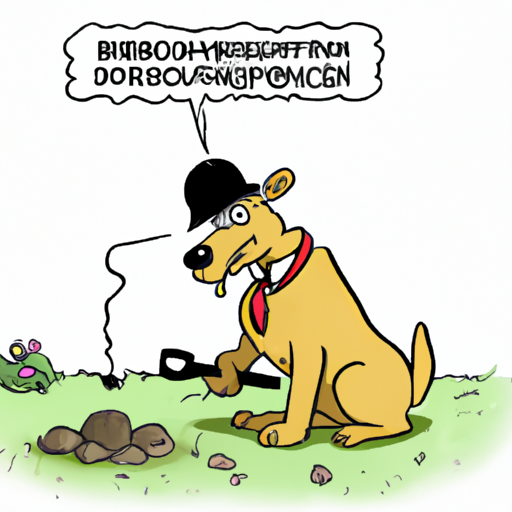Understanding the Ancestral Instincts of Dogs
Speaking directly to you, the caregiver, it’s important to remember that the behavior of dogs can often be traced back to their ancestors. Just as the birds fly south for the winter, your furry friend has instinctual behaviors inherited from their wild predecessors.
Consider the wolves, foxes, and other wild dogs that our domestic canines originated from. Food was not always easily accessible for these creatures, unlike the regular meals you provide for your pet. So, when they did have food, they would often bury the leftovers to prevent other animals from stealing it. Burying their food, or “caching” as it’s scientifically known, also allowed them to save it for later when food could be scarce.
- Ancestral Survival Instinct: Burying as a means of preservation.
- Protection from Predators: Burying to keep food hidden.
- A Method of Storage: Burying to save for later.
The Role of Domestication
Even though your dog has a loving home and a regular feeding schedule, these old instincts can still kick in. Burying bones or toys is a way for them to “save” their valuables for later. This behavior can also be a sign that your dog feels safe and comfortable in their environment – they trust that their treasured items will be there when they come back for them.
Canine Behaviours and Their Communication
Your dog’s behavior can tell you a lot about how they are feeling. Burying bones could be a sign that they are anxious, bored, or even just excited about their new toy. If your dog is burying things frequently, it might be worth talking to a vet or a dog behaviorist to ensure that there isn’t an underlying issue that needs to be addressed.
How To Respond To Your Dog’s Burying Habit
Your role as a caregiver is to ensure your dog feels safe and secure. If your dog’s burying habit becomes excessive, providing alternate activities or toys can help redirect this behavior.
- Exercise: Regular physical activity can help reduce anxiety.
- Mental Stimulation: Toys or games that challenge your dog can keep them occupied.
- Positive Reinforcement: Reward your dog for positive behavior.
The Impact of Burying Behaviour on Your Dog’s Health
While generally harmless, excessive burying can lead to certain health issues such as dental problems or digestive issues if your dog is burying and consuming non-food items. Regular check-ups with a vet can help catch any potential issues early.
| Potential Issue | Signs | Action |
|---|---|---|
| Dental Problems | Bad breath, difficulty eating | Consult your vet |
| Digestive Issues | Loss of appetite, vomiting | Consult your vet |
FAQs
Q: Why does my dog bury his bone in the couch?
A: Your dog may see the couch as a safe place to hide their bone, similar to how they would use dirt or sand outdoors.
Q: Is it bad for dogs to bury bones?
A: Not always. It’s a natural behavior but if it becomes excessive, it’s worth consulting with a professional.
Q: Should I stop my dog from burying bones?
A: If it’s not causing any harm and your dog seems happy, there’s no need to stop them. However, if you’re concerned, seek professional advice.
Q: Can I train my dog to stop burying bones?
A: Yes, with consistent training and positive reinforcement, you can modify your dog’s behavior.



